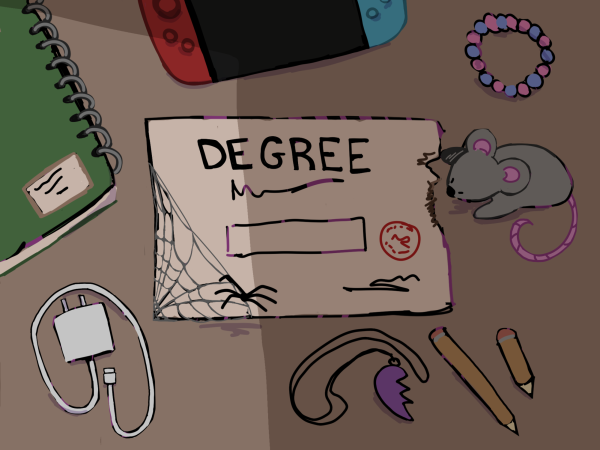Hashtags harm the security of our nation
American citizens believe that the First Amendment protects anything and everything they say, write, or post. That is not true and when you abuse your First Amendment rights there will be consequences.
On Sunday, April 13, a young girl named “Sarah” sent a tweet to American Airlines, reading,“Hello my names Ibrahim and I’m from Afghanistan … I am part of Al-Qaeda and on June 1st I’m gonna do something really big bye,” according to the New York Daily News website.
American Airlines responded by saying “Sarah, we take these threats very seriously. Your IP address and details will be forwarded to security and the FBI.”
Sarah’s tweet is not protected by the First Amendment, because her words were a threat whether they were intended to harm or just joke. Sarah was arrested on April 14 in Rotterdam, Netherlands. The Sarah situation has died down and she won’t be posting anything like that again.
It is common sense to not post threatening statements and to not talk about terrorism like it’s no big deal.
What’s even worse is that more people, mostly young teens are posting threats on social sites. Some of the tweets say “bomb goes off in 3 hours” or “I’m gonna bomb your 737 jet.” These threats are not to be taken lightly even if they are only “jokes”.
The teens are claiming they have the right to say these things because of the First Amendment. That is in no way true. These posts are threatening airline companies and how they do their jobs.
The First Amendment. which protects basic freedoms such as freedom of speech and assembly, does not protect words and posts that can cause harm, and it does not protect jokes, comments or speeches about terrorism.
Furthermore, the United States government does not condone or protect posts that joke about actions that hurt American citizens and our country.
As Americans, we have the right to freedom of speech. This right is protected by the First Amendment to the United States Constitution. Freedom of Speech is for everyone but there are limits and sometimes people push those limits.
The First Amendment focuses on the freedom of speech, press, assembly, and to petition the government. In most cases people can say what they want and there will be no problem.
People can talk about their political views, religious beliefs, and almost anything else without issues.
Protected speech includes, but is not limited to: books, newspapers, speeches, and symbolic speech. Symbolic speech involves objects such as T-shirt slogans and political buttons that portray controversial messages.
Some posts, letters, and verbal words are not protected by the First Amendment as stated on www.alcu.org, “fighting words… which by their very utterance inflict injury or tend to incite an immediate breach of peace.”
This includes anything that has been said or written with intention to harm people, including threats and mental abuse and scarring, especially when one favors a political figure or public entity.
Threats are not the only form of speech or press that are not protected by the First Amendment. Making false statements about public officals verbally or in writing are punishable becuase they can be considered libelous and can essentially ruin a person’s reputation .
Posts like Sarah’s on Twitter as well as other threatening ones elsewher online, are threats to our country. Most people should understand that threats to any country and its citizens are unacceptable.
We have the rights to speak our minds and express ourselves. The government reserves the right to investigate and deal with people that decided to abuse their First Amendment rights that were given to us, as they rightfully should.



